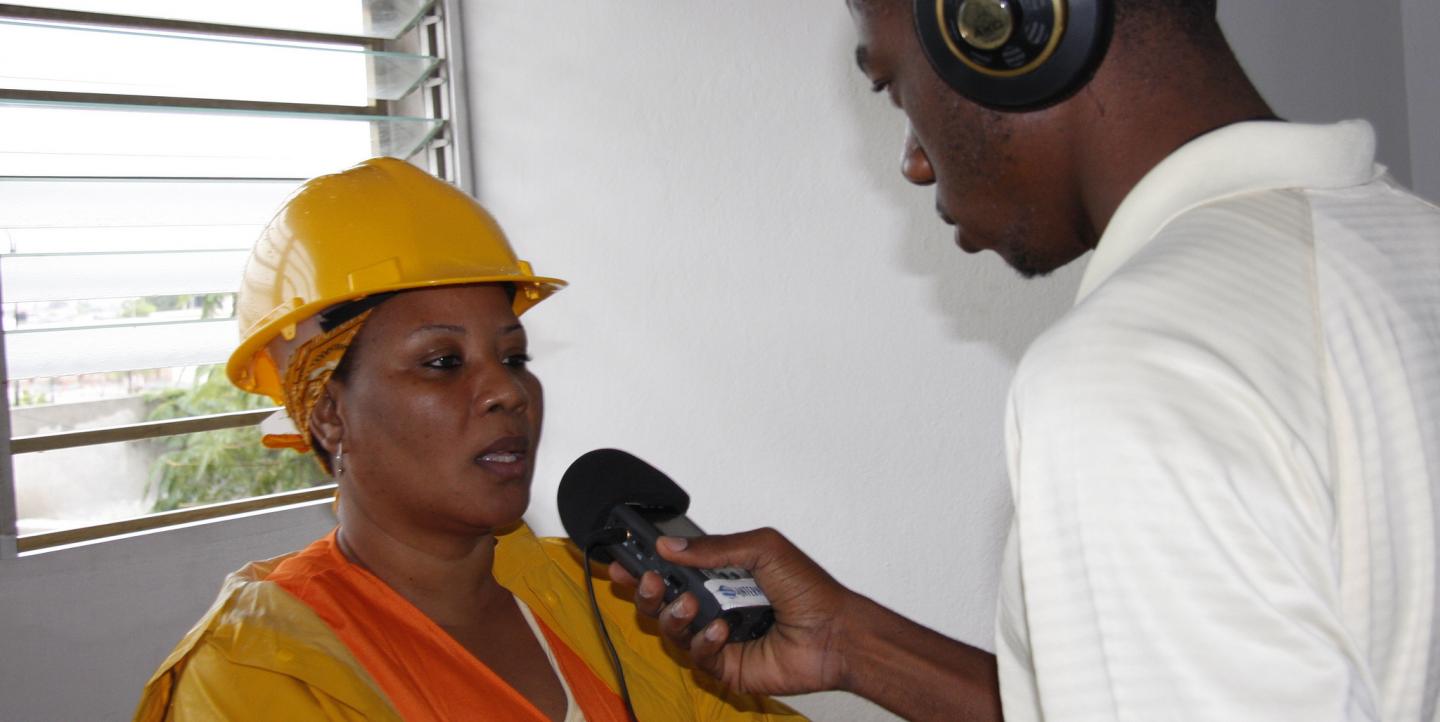Journalists must never manipulate information.
Our role as journalists is to unearth information, prepare it and then display it for the benefit of the audience. We are not there to fabricate, manipulate or force. We are there to uncover facts, not plant them. So what are the essential attitudes needed when going out on a story?
A journalist should not have an agenda.
I wrote this training module after an experience in the Caucasus when a young journalist interviewed me. I was told the interview was going to be about the course I was running.
However it became clear that the reporter had only one question in mind. She wanted to know what I thought of the political situation in her country, and she kept repeating the question, clearly eager to hear the answer that she wanted to hear.
It reminded me of the many times I have gone out on a story with an end result in mind.
Like all journalists, I always wanted my story to run, either in print when I was a newspaper journalist, or in the bulletins and current affairs shows when I was a radio and TV correspondent.
I also wanted it to be hard-hitting, insightful, memorable and – let’s be honest – to win me praise.
Looking back, and with the Caucasus interview in mind, here are a few thoughts on how to make sure journalism relates to reality and not our own idea of how a situation should play out.
1. Retain an open mind
It’s fine to set off on an interview having done your research and with one burning question in your mind. In fact, not to do so could be seen as sloppy and could leave you open to manipulation.
However, you need to retain an open mind and accept that unexpected things may happen. It may be that there is a stronger line of questioning than the one you had thought of as you set off for the interview.
You will probably not spot that opportunity if you are working to a set script and have an end result in mind.
Be prepared to leave your script behind and retain an open mind.
2. Don't force an issue
Some journalists misinterpret resistance to questioning to be an admission of guilt, and that if the interviewee refuses to answer, or avoids the question, they have something to hide. It might not mean that.
It could mean that it was a bad question not relevant to the topic. It could also mean that the person you are interviewing genuinely doesn’t have an answer or opinion. It could mean that you don’t understand the complexity of the issues being discussed.
Press too hard at times like these and you could end up looking silly and damage the integrity of the media organisation you represent.
Confrontation is not necessarily a sign of good journalism - just because you get a reaction doesn't mean you have made a good point.
3. Be firm but fair
You can be rigorous and robust in your interviewing and remain fair. You probably won’t achieve this with a shouting match and a standoff.
It will need clear questioning and sensible interpretation of the answers.
Your role is not to appear smart and score points against the interviewee. Your role is to inform the public debate so that the audience can make educated choices.
Be prepared to back down if you have asked a question that is clearly irrelevant and off-topic. Be prepared to admit when you are wrong or when you are still learning. Be prepared to acknowledge a good point if the interviewee offers a plausible explanation.
Your role is not score points against the interviewee.
Always to challenge yourself more than you challenge the interviewee. If not, you will appear arrogant and lacking in objectivity and impartiality. Interviews should be conversations, not lectures.
Interviews conducted with a desired end result are rarely more than rants, and fitting only to those media organisations that have vested interests controlling their editorial agenda.
This post first appeared on Media Helping Media (MHM) and is published on IJNet with permission. It originally appeared on IJNet on June 25, 2011. The author has updated the post, and the revised version appears above.
MHM is a training information site that provides free media resources for journalists working in transition states, post-conflict countries and areas where freedom of expression and media freedom is under threat.
David Brewer is a journalist and media strategy consultant who set up and runs Media Helping Media. He delivers media strategy training and consultancy services worldwide. His business details are at Media Ideas International Ltd. You can follow @helpingmedia on Twitter.
Photo courtesy of Internews Europe under a Creative Commons license.

